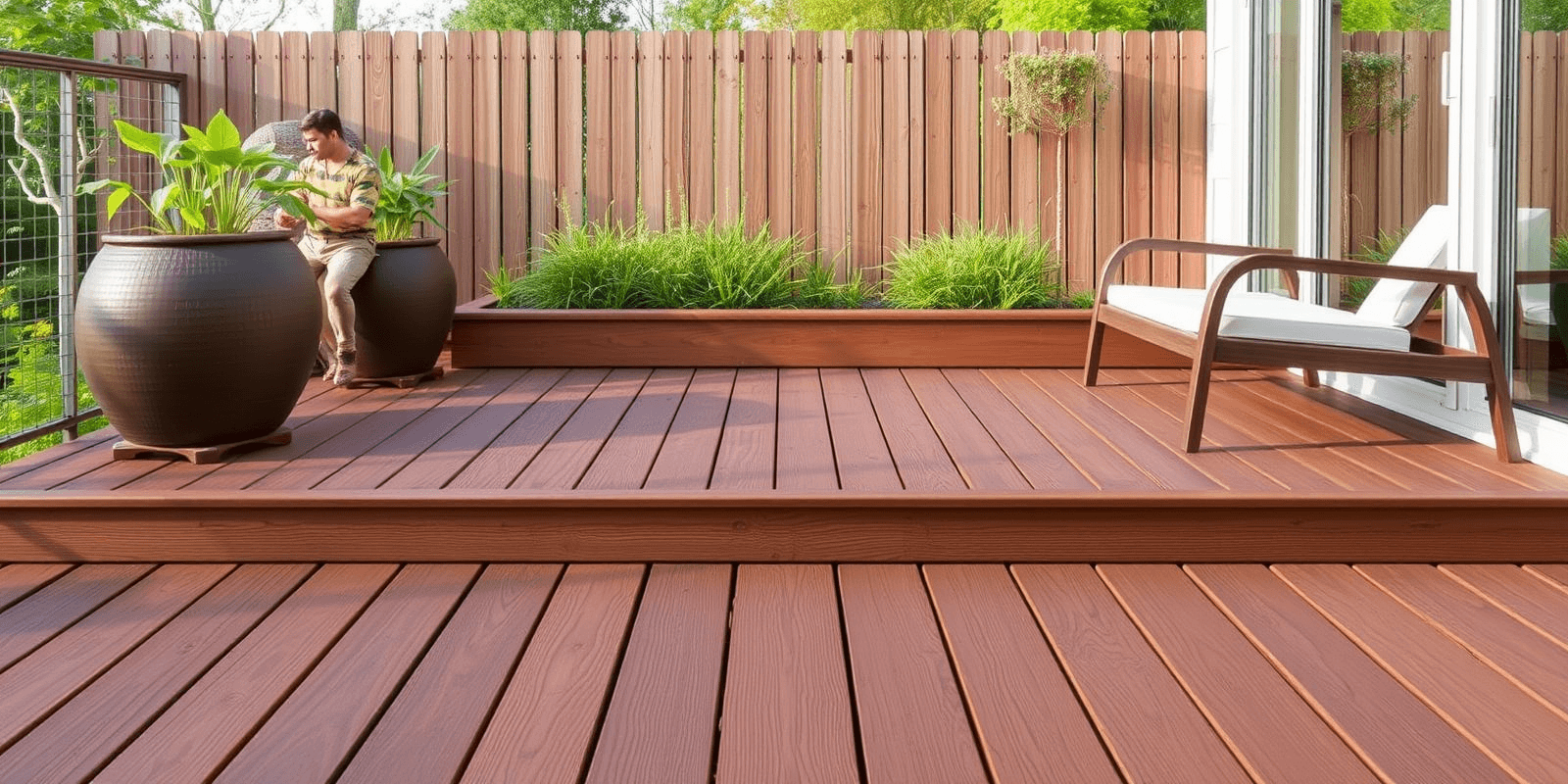Our Location
304 North Cardinal St.
Dorchester Center, MA 02124
Learn why non-toxic WPC decking is becoming the go-to choice for eco-minded consumers, featuring its sustainability, long-lasting durability, and beautiful design options.

In today’s world, where environmental consciousness is at the forefront of many people’s minds, choosing products that align with green living principles is more important than ever. One such product gaining popularity is non-toxic WPC (Wood Plastic Composite) decking. This innovative material not only offers durability and aesthetic appeal but also aligns perfectly with eco-conscious consumers’ values. In this article, we’ll examine the qualities that make non-toxic WPC decking ideal for green living, emphasizing its production process, eco-friendly materials, maintenance benefits, and alignment with eco-conscious lifestyles.
The foundation of any green product lies in the materials it uses. Non-toxic WPC decking is made from a blend of wood fibers and plastic, typically derived from recycled sources. This combination ensures that the material is both durable and environmentally friendly. The wood fibers come from sawdust or wood chips that would otherwise be discarded, reducing waste in landfills. Meanwhile, the plastic component often includes recycled high-density polyethylene (HDPE), which is known for its recyclability and resistance to environmental degradation. By utilizing these materials, non-toxic WPC decking reduces the demand for virgin resources and contributes to a circular economy.
The production process of non-toxic WPC decking plays a crucial role in minimizing its environmental footprint. Unlike traditional wooden decks, which require extensive harvesting and processing of timber, WPC decking involves mixing pre-processed wood fibers with plastic in a controlled environment. This method significantly reduces energy consumption and greenhouse gas emissions associated with transportation and processing. Furthermore, manufacturers are increasingly adopting sustainable practices, such as using renewable energy sources and implementing waste reduction strategies, to further enhance the eco-friendliness of their products.
One of the key advantages of non-toxic WPC decking is its low maintenance requirements, which contribute to its longevity and reduced environmental impact over time. Traditional wooden decks require regular sealing, staining, and painting to protect against moisture, insects, and UV damage. These processes involve the use of toxic chemicals that can leach into the environment and pose health risks. In contrast, non-toxic WPC decking is inherently resistant to moisture, mold, and mildew, eliminating the need for harsh chemicals. Additionally, its resistance to rot and insect damage means that it requires minimal upkeep, extending its lifespan and reducing the frequency of replacements.
Non-toxic WPC decking aligns perfectly with the values of eco-conscious consumers who prioritize sustainability in their daily lives. By choosing this material, individuals can enjoy the beauty and functionality of a deck while minimizing their ecological footprint. Moreover, the long-term cost-effectiveness of non-toxic WPC decking makes it an attractive option for those looking to reduce their overall environmental impact without compromising on quality or aesthetics. As more people adopt eco-conscious lifestyles, non-toxic WPC decking stands out as a win-win solution that meets both functional and environmental needs.
Non-toxic WPC decking offers a compelling alternative to traditional wooden decks for those committed to green living. Its eco-friendly materials, sustainable production process, low maintenance requirements, and alignment with eco-conscious lifestyles make it an ideal choice for environmentally conscious consumers. By choosing non-toxic WPC decking, individuals can create beautiful outdoor spaces that contribute to a healthier planet. As awareness about sustainability grows, non-toxic WPC decking is poised to become an increasingly popular option for those seeking durable, low-impact solutions for their homes.